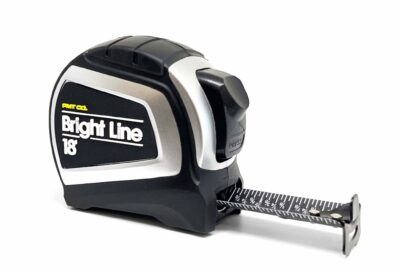Uncategorized
4 Types of Measuring Tapes Used in Surveying
Surveying is the act of collecting measurements and dimensions of a particular physical area. It plays an essential role in many scenarios, from setting property boundaries for construction to conducting geographic studies and research. There are numerous ways to collect surveyed data and various tools for the job. Here are four common types of measuring tapes used in surveying and their roles.
1. Heavy-Duty Steel
Steel measuring tapes are the most common type of measurer. They offer multiple uses, including construction, woodworking, chain standardization, and manufacturing. Steel tape blade material provides many beneficial properties, from high durability to straight and sturdy structural readings, making them a reliable and popular heavy-duty tape measure. In surveying, steel tapes collect readings on flat and leveled grounds, covering significant distances and providing accurate measurements.
2. Vinyl
Vinyl measuring tapes provide surveyors with a more flexible form of measurement than their steel counterparts. They are also lighter in weight, making them easier to handle and carry. Vinyl measuring tapes are often used for offset and topographical measurements that feature unleveled surfaces and don’t require a low margin of error.
3. Precise Invar
Invar tape measures carry a reputation for producing accurate measurements. Their alloy composition of steel and nickel gives them a sturdy tape that holds its shape but also bends and adapts to curved and slanted surfaces. Their multi-metal structure also increases durability against natural elements. It minimizes expansion and shrinkage from temperature changes, withstands water exposure, and provides an easy-to-clean material that makes getting rid of mud and dirt a breeze.
4. Synthetic Tape
Synthetic tapes provide a mix of qualities mirroring their other variations. Like steel and invar tapes, they consist of durable material composition—fiberglass coated in vinyl—making them perfect for outdoor surveying conditions. However, compared to steel and invar, synthetic tape measures provide more benefits when surveying areas with highly conductive features in the vicinity, like electric fences and railways. They also provide maximum flexibility and work well for gaining measurements on unlevel land.
These four types of measuring tapes used in surveying offer varying qualities suitable for different tasks on the job. They make collecting measurements easy, no matter the terrain or outdoor setting. At Perfect Measuring Tape Co., we offer a wide variety of tapes to explore, including ones fit for surveying. Check out our selection and find the right measurement tool for you and the job at hand.









Leave a reply